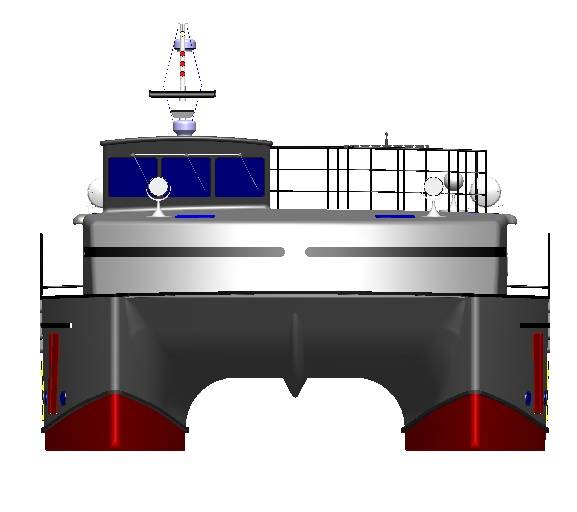
Trawlercat Marine Designs of New Westminster, British Columbia, Canada is seeking joint venture partners to join them in building their purpose-designed anti-piracy personal escort vessels (PEV).
Trawlercat Marine’s president, Captain Graham Pfister states that “Individual PEV’s can chase pirates away from unarmed and even armed ships. They can prevent groups of pirates from “swarming” and getting close enough to fire their weapons and cause injuries, do damage or even board a ship. Swarming is now “a clear and present danger”, he said. “With pirates improving their techniques and their ability to seize a ship at sea we have come up with a means to prevent them which costs far less and will be far more successful than employing large expensive war ships burning huge amounts of fuel and housing large numbers of crews costing millions of dollars.”
Captain Pfister believes PEV CONVOYS are the next logical step with one PEV escorting two or more ships. “We also envisage fleets of 5 or more PEV’s escorting “convoys of up to 20 ships” through pirate infested waters; something not seen since the Second World War”, Captain Pfister added. “If you have ever made Suez Canal transits, as I have”, he said, “and seen the gathering of ships that follow procedures, line up and proceed, night or day in an organised convoy you will know that convoys can be set up and carried out successfully”. “This is much easier to accomplish with today’s satellite navigation and communications equipment enabling ships to report and rendezvous at a specific place and depart at a specific time.” He said
“Convoys will be more cost effective for the shipping companies while being very profitable to the security companies due to the economy of scale paid “by so many too so few”. “We can envisage fleets of our long range PEV’s going backwards and forwards escorting convoys of ships safely through troubled waters for weeks or even months at a time”, Captain Pfister claims.
The success of PEV Convoys would lead to a major drop in hijacking leading to a reduction in shipping insurance. This would reduce shipping costs which in turn will lower the cost of imported and exported goods including oil and other raw materials. Ultimately the whole global economy would benefit.
The PEV design work is almost completed and builders have been approached for quotes. The PEV’s are to be built in production molds using the epoxy resin infused carbon fibre and Kevlar foam sandwich construction method similar to Airbus and Boeings latest commercial airliners. Carbon fibre is lighter and stronger than aluminum and popping them out of production molds results in a faster build time that is very cost effective. The first vessel is expected to be completed by June 2012 with one vessel completed every week thereafter if all goes according to plan and funds materialise to finance the project Captain Pfister concluded.
www.trawlercatmarine.com




